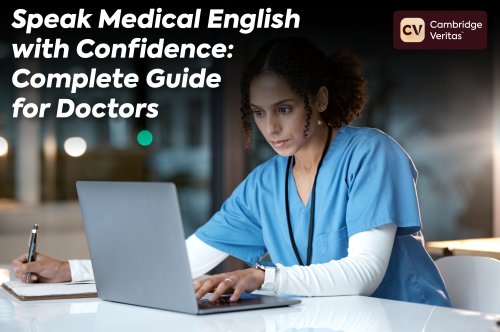Best 5 Ways To Immerse Yourself in the English Language

Have you ever wondered the difference between someone who seems to glide through learning Spoken English and struggles with every word – perhaps even every syllable?
You may have assumed that’s it a matter of skill. You dismiss their success as a natural talent they possess for learning the spoken word. You may even credit them for being smarter than the average person. You may think all of that, but you’d be wrong. Those who learn how to speak English fluently are neither smarter than you nor do they necessarily have a gift for learning languages. What separates those who learn the spoken word of English from those who don’t can be described in one word: immersion. What? Those who seem to learn effortlessly immerse themselves in the language. They seek out opportunities to speak English at every turn. If you have to choose between your native language and English, choose English at every opportunity.
Consider this for a moment. You’ll never improve at any activity – jogging, playing the piano, or even knitting – unless you practice. Practicing is the only way to immerse yourself in English.
Don’t spend a lot of time perfecting your grammar.
Believe it or not, this is an important rule in learning English. Your goal isn’t to write a paragraph in English with no grammatical mistakes. Your goal is to say it. So don’t obsess about grammar. If you listen closely to native speakers, not everyone speaks English perfectly all the time. Let’s face it; at this point in your studies, you already have a firm grasp of English grammar. You could even correct a native speaker when they don’t use proper grammar. Therefore, to become a better speaker, you should focus on using the language as if it were your native tongue. Studying grammar will only hinder your development using the spoken word. If you analyse what you’re about to say and think about all the grammar rules before you speak, you’ll discover the precise moment to say what you want to.
When you’re thinking about this guideline, you need to know that even most native speakers of the English language only know about 20 percent of all the hundreds (and hundreds) of the rules. A mere 20 percent. You probably already know more than that at this point in your studies. Don’t worry; the more frequently you speak English, you’ll undoubtedly get an ear for proper grammar. After a while, the sound of an improperly structured sentence or verbs that don’t agree with your subject will sound horrible. You can speak well if you know the right sounds. I’m guessing that, as an advanced student, you already grasp this aspect of your learning.
Learn phrases, not words.
Think about it. You probably know many vocabulary words. And you undoubtedly know how to pronounce them. But what you need to study at this point are phrases. While learning the words is necessary, languages are a compilation of terms. I’m sure you know students of the language who have an impeccable grasp of vocabulary words but still can’t create a sentence if their life depended on it. Why? They failed to study English phrases.
When children learn to talk, they’re immersed in their native language. It’s usually the only language they hear when they wake up until they’re tucked into bed at night. They hear not separate words but sentences, phrases, and everything in between.
If you already know about 1,000 words (and know more than that right now), you could stumble over stringing more than two sentences together to engage yourself intelligently in conversation. But all you need to know is approximately 100 phrases, and you’ll be able to easily string sentence after sentence. In contrast, you’ll be surprised how much more fluent you’ll be. If you know 1,000 separate words, you may be able to create one sentence correctly—only one sentence.
If you learn 100 phrases, you can speak many more sentences. And if you get ambitious and learn 1,000 words (it’s not nearly as difficult as it seems) . . . well . . . you’ll be almost as fluent as a native speaker. Once you learn even a few of these phrases a week, your understanding of speaking this language with exploding exponentially. The trick is knowing the words so well that you only have to exert a little effort to complete them. Below are some of the most common words in the language. How many of them do you know? If you find some you’re stumbling over, you may want to study those.
- How often do you (plus verb)?
- Can I help you (plus verb or as a question)?
- It’s too late for that.
- You could have (plus a verb)
- If I were you, I would have (add verb)
- It looks like (plus a noun)
- It’s time to (plus a verb)
- What if (plus a subject and verb)
- How was (plus a noun)
- Let’s say that (plus subject and verb)
- I think I should (plus a verb)
- I’m sorry to (plus a verb)
- I was thinking about (plus a verb)
- I think I should (plus a verb)
- Thank you for (plus a verb)
- I don’t know what to do about (plus a noun)
- Have you ever thought about (plus a verb)?
Using just one of those phrases, you’re about to see how many different situations it’s suited for:
- Have you ever thought about starting your business?
- Have you ever thought about (plus a verb)?
- Have you ever considered a career change?
- Have you ever considered learning to swim?
- Have you ever considered becoming a writer?
- Have you ever considered having more children?
- Have you ever considered selling your house?
- Have you ever considered traveling to South America?
- Have you ever considered learning Russian?
- Have you ever wondered what it means?
- Have you ever thought about joining a fitness center?
If you learned just this phrase, you could immediately see how many ways you can use it in daily conversation. This phrase, in particular, is an excellent example because when you ask it, you’re inviting someone into a conversation with you. That will spawn even more sentences using phrases you’ve already learned.
Can you see how pointless it becomes to learn individual words when your ultimate aim is to speak more fluently? That’s not to say that learning more words isn’t essential. But don’t forget to give priority to teaching phrases as well.
Check this out The Six Steps to Meeting Someone in 2023
Think in English
When you go to speak to someone, don’t think in your native language and then translate your sentence into English. Think in English. This is one of those easier-said-than-done guidelines. You’re trying to break a habit – thinking in your native tongue – that has been with you all your life. Honestly, you probably don’t know any other way to think.
Why is thinking in your native language not a particularly good idea? The ordering of the words in your native language is more than language not going to be the same as in the English language. Your natural tendency will be to repeat the English words in that order. But more than that, in translating your sentence, you’ll probably be trying to use grammar rules you’re not all that familiar with yet. Thinking in English is certainly difficult at first, but the more you try, the easier it becomes. And the easier it becomes, the more fluent you’ll be in English. Try it next time you speak English.
Practice speaking English when you hear it.
Remember that reading and listening to English words doesn’t make you a better speaker. It will give you more knowledge of reading and understanding the written word when spoken to you. But learning to say it yourself requires you to do more work. It requires that you genuinely become interactive with the language.
Reading and listening to English are two of the most important aspects of learning English. But you’re missing the final piece of the puzzle if you don’t practice speaking it. This applies to all languages, not just English. Think about the order in which young children learn their native language. They first learn to speak, become fairly fluent, and eventually read. Yes, I know that in the process, they make many grammatical mistakes. One of the most common is to use the word “brung” as a past tense form of “bring.” The correct format is brought. “Look what I’ve brung you.” But the vital point is they didn’t wait until they knew the proper verb form before they spoke.
And they do indeed get their message across. So, don’t obsess with reading and listening. The natural order of learning a language is listening, speaking, reading and then writing. So don’t think your reading and writing skills aren’t good enough to allow you to say it. Your average four-year-old doesn’t seem to worry about it.
Check this out Learn How to Use the Pronouns They-Them Effectively in 2023
Surround yourself with others who speak English
I've said it before, but I'll repeat it. Immerse yourself in English. Compare the English language to an ocean. If you stay on the ship, you'll only learn what's at the ocean's surface. Sure, you'll have a great view of the waves and know the temperature by dipping your hands in the water occasionally. But you never know what's beneath the surface unless you dive into it.
If you don't plunge from the boat into the ocean right now, when will you? Let's think about it. Those English students who excel at speaking the language are usually the individuals who attended – or are still listening – an English-speaking school. Why is that? Because they were in a culture that forced them to speak English. They might have preferred to talk more in their language if they had their way.
But they took all their classroom lessons in English, talked to their professors in English –even talked to their friends in English. Compare these individuals to those who studied abroad but returned, lamenting they still aren't fluent in the language. Because they were in the English-speaking world the whole time and never allowed them to take the plunge. For whatever reason, they never took the plunge into entirely using what skills they had developed up to that time.
Does that mean you need to travel or attend an English school to become fluent? It's one of the most effective ways to improve. No, not by a long shot. You can become fluent in the language without ever traveling anywhere! Make a pact with your friends who are also learning the language so that you will all dive into the ocean of English to know what's beneath the surface.
Promise each other that when gathered, you'll only speak English. Don't have that many friends who are English speakers or learning the language? Before you know it, you'll find yourself thinking in English when you're around these individuals and speaking in the language won't seem so frightening anymore.
There are countless ways to immerse yourself in a language and accelerate your learning: watching movies and TV shows, listening to music and podcasts, conversing with native speakers, reading books and articles, and attending language classes and workshops. By trying out these five immersion techniques and exploring new ways to approach your English, you can take your English skills to the next level and reach your personal and professional goals. So why not start today and immerse yourself in the exciting and rewarding world of the English language?

















.png)